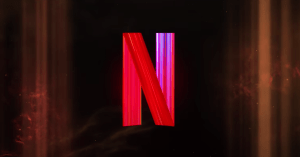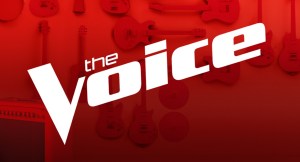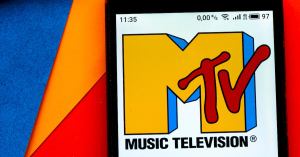If it’s one thing fans of Phoebe Robinson can count on is her knack for turning the difficulties of life into comedy, and she’s doing in a new show. One-half of the iconic 2 Dope Queens podcast crew, Robinson’s new Freeform comedy series Everything’s Trash premieres Wednesday, July 13 at 10 p.m. ET. Robinson is not only the star of the show, but she wrote and executive produced the series. The show follows her character, also named Phoebe — a 30-something outspoken podcast star making her professional mark while living a broke life and struggling romantically in the Crown Heights section of Brooklyn. When her “perfect” older brother launches a political campaign, she’s forced to start her adulting journey. It perfectly embodies life in the city as an up-and-coming career woman trying to find a balance with her personal life.
Everything’s Trash stars Jordan Carlos, Toccarra Cash, Nneka Okafor and Moses Storm. It is executive produced by Jonathan Groff, who also serves as showrunner. Tiny Reparations, led by Jose Acevedo, serves as a nonwriting co-executive producer, and the show’s co-executive producer Chioke Nassor also is a director. The series is produced by ABC Signature. Ahead of the show’s premiere, PopCulture.com spoke with Robinson about how much the show resembles her real life, casting, and more.
Videos by PopCulture.com
PC: Congratulations on your new Freeform series Everything’s Trash. I loved it, could completely relate. I love that it showcases a woman in her thirties, who’s really beginning to have career success, but the bank account isn’t really matching what the career success is giving – and the personal life is equally as confusing at times, so the struggle is real. How much of your own experience is factored into, and of course, exaggerated into the show?
PR: Certainly the money stuff, for sure. I was in debt for a long time with credit cards and student loans. The podcasting stuff is really a lot of it’s, “ripped from the headlines” Law & Order style. I was definitely doing 2 Dope Queens, but I’m like, “I’m still trying to put two pennies together.” So, I think because [in] a lot of industries, you can have this success on the outside that looks huge and major, and the bank account isn’t catching up with that, at least to start. And so, I really just kind of wanted to show that kind of experience because I think a lot of times people feel as though, “Okay, once you hit 30, then everything turns around and boom, boom, boom, boom.” And I’m like, sometimes your career takes off later. Maybe it’s not until your early thirties or your mid-thirties, that things really start popping for you. So, I really wanted to show that experience, especially having it set in Brooklyn, and we’re shooting around places like Crown Heights just really shows sort of a more authentic side of Brooklyn and sort of what that struggle can be like.
You’ve definitely given it because living in New York in general just makes it 10 times more difficult to even catch up financially. How did you go about balancing being a writer, executive producer and a star of the show? Because that’s such a massive undertaking?
Yeah, it’s really hard. I mean, we started the writer’s room in October and then we started shooting end of March and then we wrapped July 1st. So, it really became all-consuming and sort of being a part of every step of the process was really exciting because I feel as though I learned a lot and got my sea legs with this first season. So, it was really exciting, but it was kind of tough to juggle that hat of like, “Okay, now I got to be an actress in this moment. Now I have to be a producer in that moment.” But luckily, I had a great writer’s room. My showrunner, Jonathan Groff, was the perfect person to lean on. So, it really does take a village. It’s a lot of people to make a TV show together. I think there were 220 people on the crew, which is amazing.
You just go, “Oh, this is a little nugget I had in my head, and now 220 people are working to execute this dream.” So, it was definitely difficult. I drank a lot of tea and a lot of diet Coke. I call myself loopy Phoebs when I get on… I’ve been working a lot of hours. I’m just making dumb, silly jokes to make the crew laugh. So, that’s kind of how you get through it, and you just learn to not be so hard on yourself and be like, “I’m only one person. If I have to step away for five minutes, y’all have to give me that.” And just really speaking up and saying that you need that moment because sometimes you can get scared that if you say you need a break, people are going to think you’re weak or that you don’t want to do the work. And it’s just like, “Well, I’m human and not a machine.” And a lot of times, if you just say, “Hey, I need a moment,” People are more than accommodating, so that’s nice.
What about the show do you feel makes it perfect for the Freeform audience? And then you have such a great cast, so did you have a major hand in casting and if so, did you get your dream cast with this show?
I did. I’ll start with the second question. So, I love the cast so much. Jordan Carlos plays my brother, Jayden. He and I have actually known each other for 13 years because we met doing stand-up together. And when I was writing this character, I wrote a Jordan Carlos type, and then I was like, “Hey, can you audition for this? I think you might be perfect for it.” And of course, he was. And it was really interesting because we were doing all this casting during COVID, so everything was a Zoom audition, which is always kind of weird. But everyone, Nneka Okafor, Toccarra Cash, Moses Storm, we were in the Zoom and within five minutes of chatting with them or after them doing the first scene, we were just like, “Oh, this is it.” We’ll audition other people, but we just knew that these were the people. And so, we really just have this great chemistry together as five people and so that’s really exciting.
And then I think what’s really great about Freeform is they’re in a moment right now where they’re, yes, they want to have the Grown-ish sort of show, what life is like in your twenties, but also with Single Drunk Female, and certainly, with this show, it’s like, “Okay, these are now people in their thirties who are still trying to figure it out.” And I really like that Freeform is this place that’s really sort of advocating for watching a journey of women growing at every stage of their lives and really sort of talking about some issues that are real. So, it felt like a really good fit to be with Freeform.








